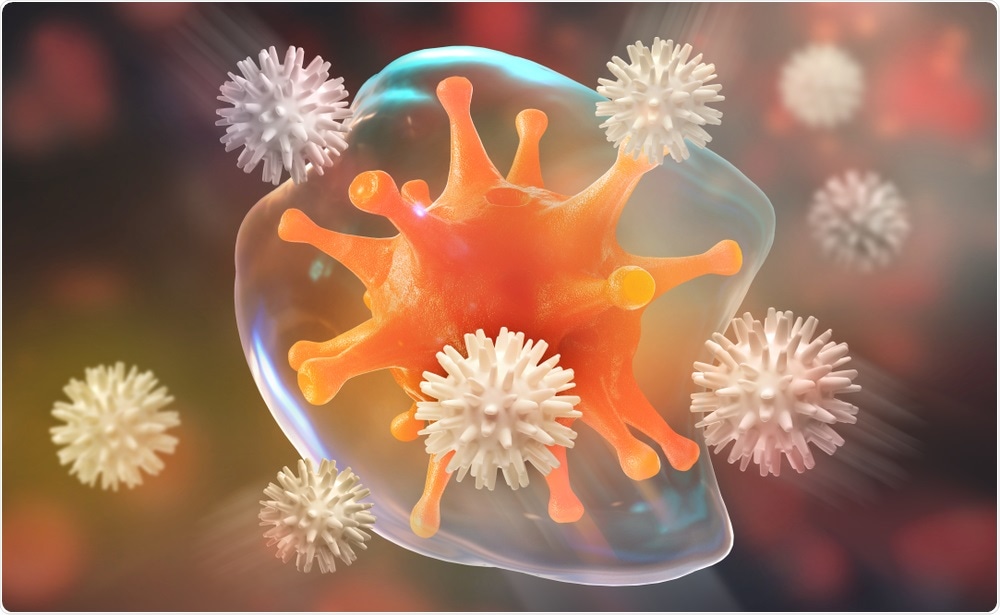Over time, the immune system in humans weakens making older adults more prone to infections. This leaves researchers with the puzzling dilemma of retaining health throughout the lifespan.

Image Credit: Yurchanka Siarhei/Shutterstock.com
As part of continuing research at the University of Arizona Health Sciences, recent research on the impacts of infection on the immune system eventuated in an astonishing outcome that can pave way for new immunotherapies to hinder disease and new means to strengthen the aging immune system.
The immune system comprises T cells, white blood cells that protect against pathogens like bacteria, viruses, and parasites, to combat infection.
Earlier studies carried out by Janko Nikolich-Žugich MD, PhD, professor, and head of the UArizona College of Medicine— Tucson’s Department of Immunobiology, discovered that both the function and number of naïve T cells—cells that have never responded to an infection earlier—were negatively affected by aging.
The main population of cells that we lose in the process of aging are naïve T cells. This study showed that both the maintenance of naïve T cells over time and their function were improved by the presence of an infection, which aligns somewhat with the hygiene hypothesis that basically says if you allow your kids to be exposed to everyday germs, it’s going to be better for them.”
Janko Nikolich-Žugich, Professor and Head, University of Arizona College of Medicine
Earlier it was presumed that infections majorly impacted the formation of memory T cells. Upon exposure to a pathogen, certain naïve T cells learn and remember, becoming memory T cells that obstruct re-infection when encountered by the same pathogen again.
The current research by UArizona Health Sciences identified a process by which an infection harbors the potential to boost the immune system against future attacks by the same pathogen and also different ones. The study was published in the Nature Communications journal.
The human body controls cell growth through various means and one such way is interleukins—naturally found proteins that mediate communication between cells. Interleukin 7 (IL-7), performs a vital role in naïve T cell development and maintenance.
While detecting a foreign invader, the body puts the naïve T cells into action by major histocompatibility complex (MHC) molecules—a group of genes on the cell surface. MHC molecules take a part of the pathogen and display it on the cell surface for recognition by the appropriate T cells.
In the absence of infection, MHC molecules also offer subtle “tickling” signals to naïve T cells to hold them alive and able to receive IL-7 signals that keep their metabolism optimally tuned. The infected cells also produce interferon type 1 molecules, which signals additional immune responses.
Now we know that when you have these fairly substantial infections, interferon type 1 molecules are making the MHC and Interleukin 7 signals stronger, more abundant, and more available to naïve T cells. It has never been shown that infection can do something like this. This study showed that an infection not only better maintained the number of naïve T cells, but it put them on a slightly higher state of alertness.”
Janko Nikolich-Žugich, Professor and Head, University of Arizona College of Medicine
This indicates that when the immune system faces a new infection, like SARS-CoV-2 or a novel strain of influenza, naïve T cells will respond rapidly and offer better protection.
Dr. Nikolich-Žugich intends to evaluate how long the infection-mediated naïve T cell response persists, and if it relies on the presence of multiple or persistent infections.
Ultimately, the UArizona Health Sciences researchers intend to generate therapies that enhance the immune system to combat disease by employing naïve T cells that are in an elevated state of alertness, to focus on things like cancerous tumors. The researchers also aspire to analyze the feasibility of utilizing the process that retains naïve T cell production to enhance the aging immune system.
Source:
Journal reference:
Jergović, M., et al. (2021) Infection-induced type I interferons critically modulate the homeostasis and function of CD8+ naïve T cells. Nature Communications. doi.org/10.1038/s41467-021-25645-w.